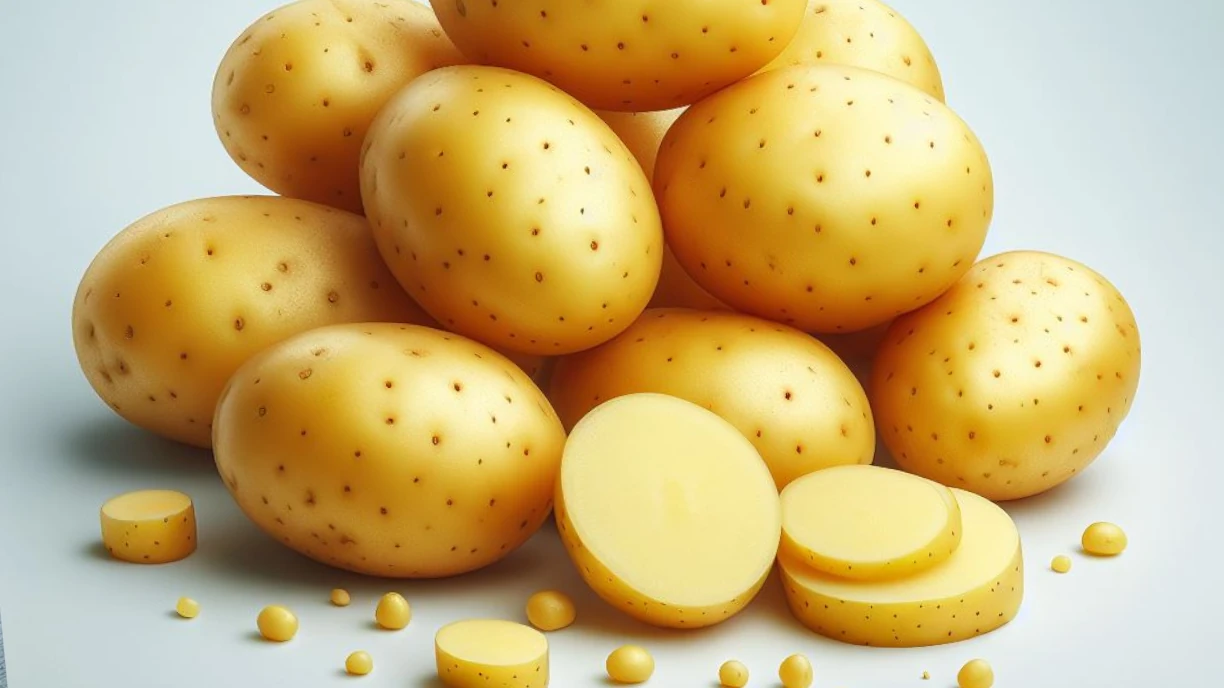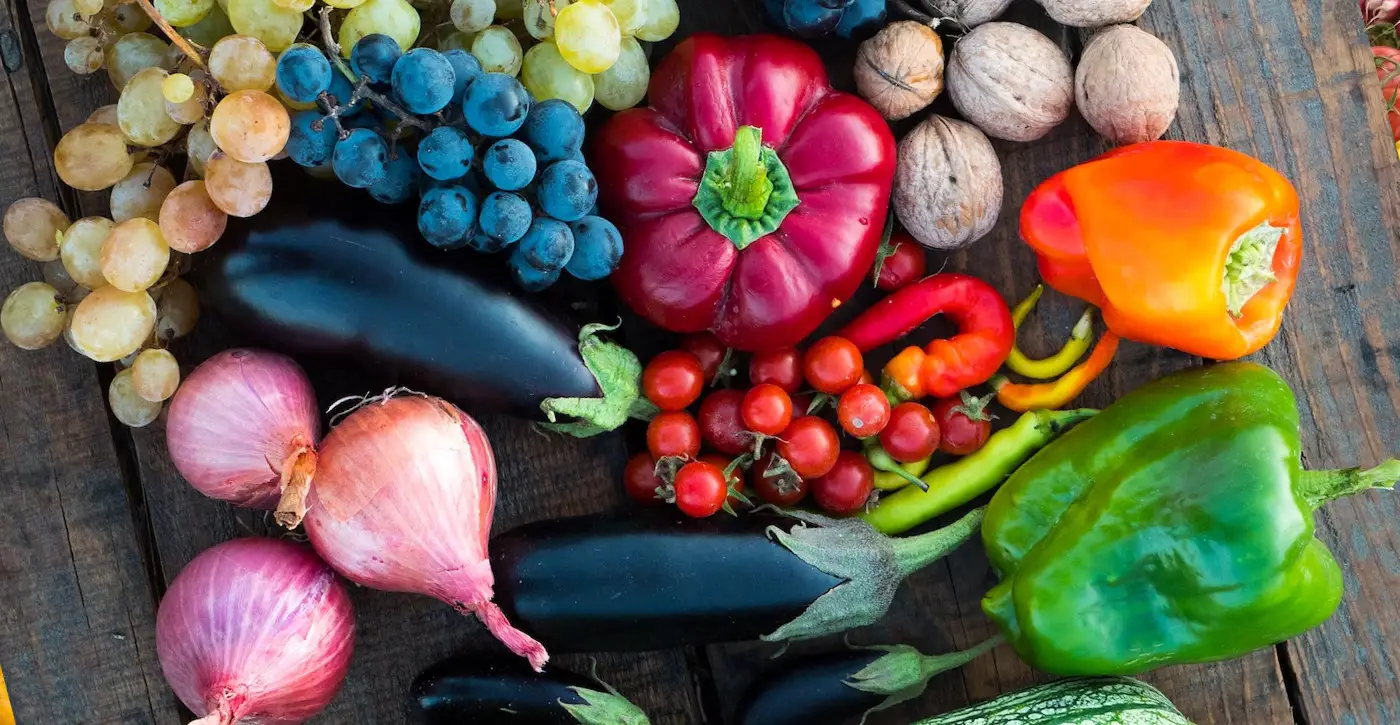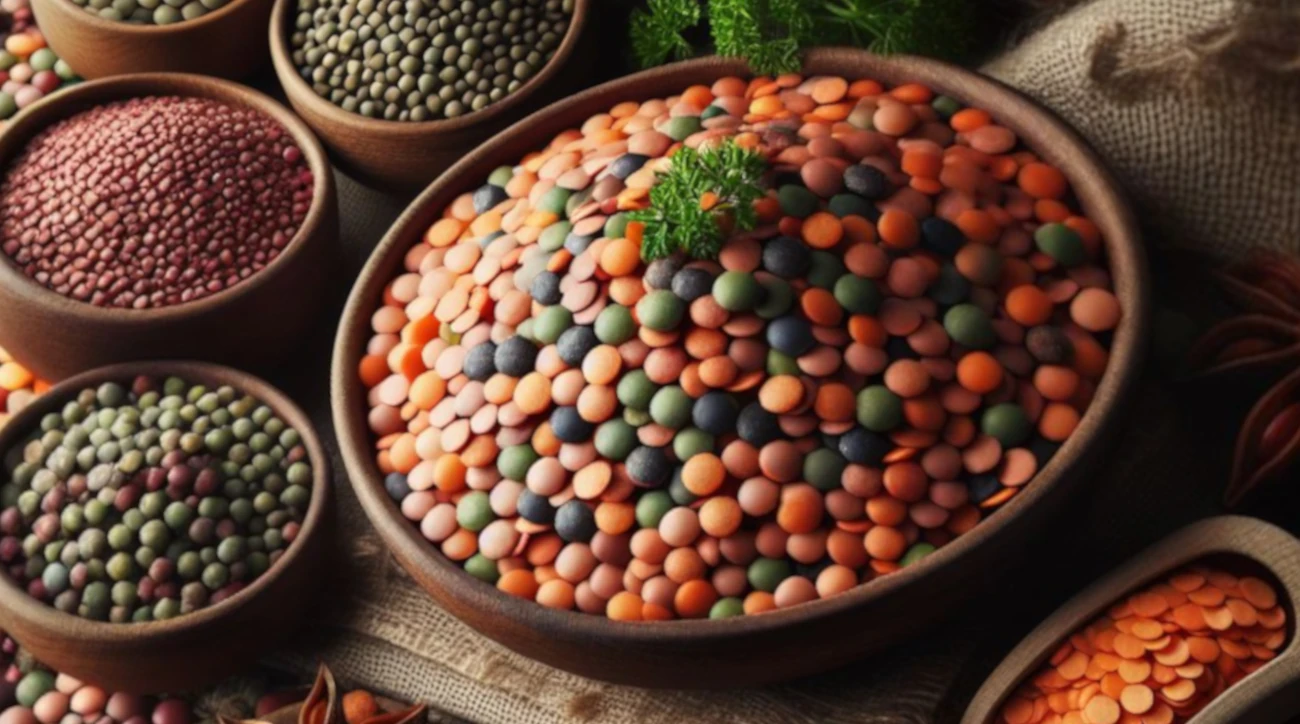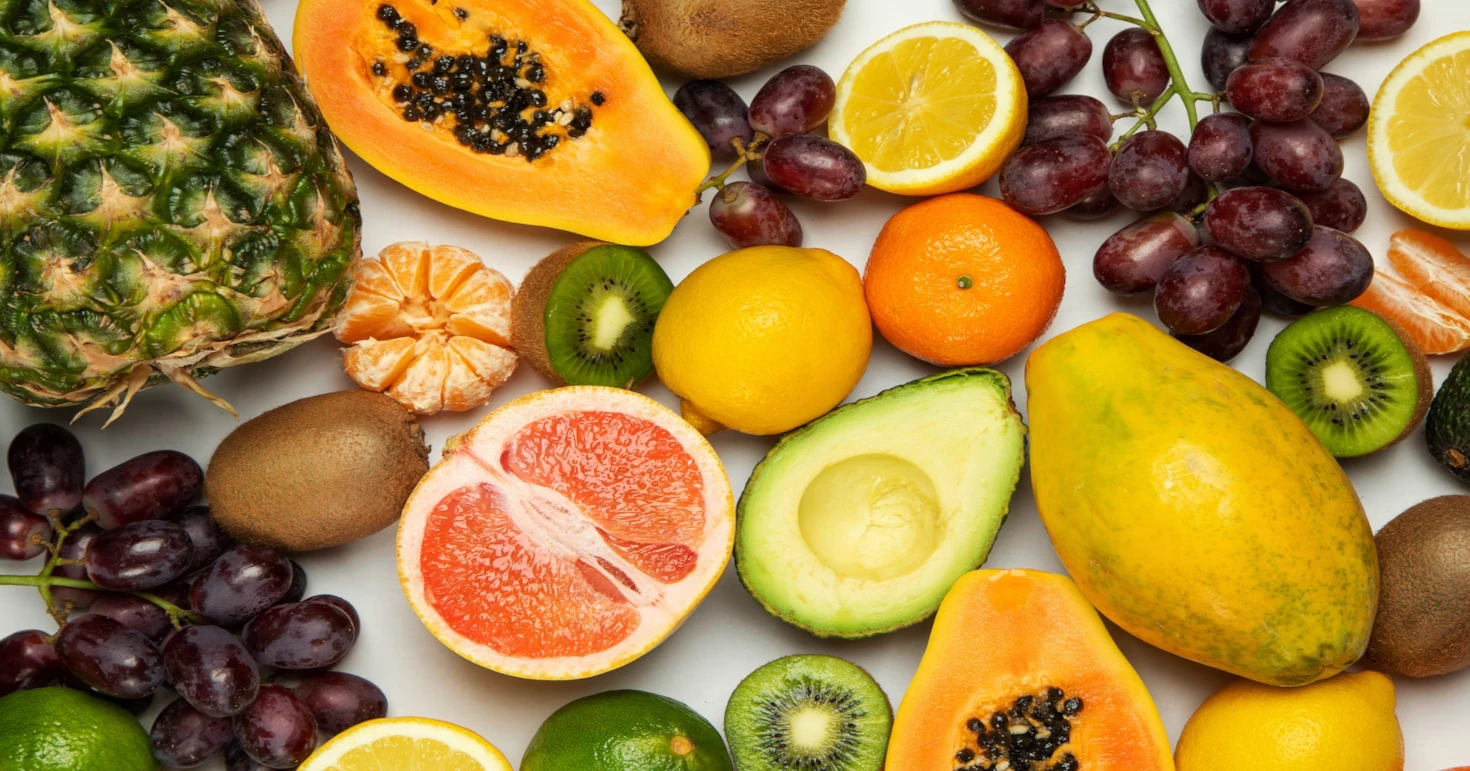Yams Lysine and Arginine Info Sheet
Overview
Yams are starchy tubers that are native to Africa and Asia. They have a brown skin and a white or yellow flesh. They are often confused with sweet potatoes, but they are not closely related.Yams are rich in carbohydrates, fiber, vitamin C, potassium, and manganese.
They also contain some antioxidants and anti-inflammatory compounds.
Yams can help lower blood pressure, improve blood sugar control, and support digestive health.
| Name | Lysine (mg/100g) | Arginine (mg/100g) | Ratio |
|---|---|---|---|
| Yams | 44.5mg | 95.5mg | 0.466 |
Yams contains 44.5mg of Lysine and 95.5mg of Arginine per 100g of product.
This means Yams has a low Lysine-Arginine ratio of 0.466.
Because Yams contains much higher levels of arginine than lysine, limiting its consumption is recommended by people who suffer from herpes, as it may trigger outbreaks.
Lysine Considerations
Yams are not a good source of lysine, as they only provide about 6% of the recommended daily intake (RDI) per 100 grams.
Lysine is an essential amino acid that is important for protein synthesis, collagen formation, and immune function.
People who eat a lot of yams should make sure to get enough lysine from other foods, such as meat, eggs, dairy, soy, or legumes.
Lysine can help prevent or treat cold sores, which are blisters caused by the virus HSV-1, also known as herpes.
Lysine works by blocking the growth of HSV-1, which needs another amino acid called arginine to multiply and infect cells.
Lysine can only be obtained through diet, and can be found in different high-protein foods like dairy products, fish, eggs, meat and poultry.
Arginine Considerations
Yams are a moderate source of arginine, as they provide about 21% of the RDI per 100 grams.
Arginine is a semi-essential amino acid that is involved in nitric oxide production, wound healing, and immune response.
Arginine may also have some benefits for cardiovascular health, erectile dysfunction, and exercise performance.
However, people with herpes infections should limit their intake of arginine, as it may trigger or worsen outbreaks.
Arginine can support your wellbeing and performance, such as lowering your blood pressure, healing your wounds, and boosting your exercise endurance.
Arginine can be made by your body or obtained from foods like meat, dairy, nuts, and soy.
Unfortunately, the herpes virus is known to "feed" on arginine, and having a diet higher in arginine than lysine may increase the occurrence and severity of cold sores and herpes outbreaks.
Lysine-Arginine Ratio
Yams have a low lysine-arginine ratio, which means they have more arginine than lysine.
This may be beneficial for some people, such as those with high blood pressure, poor circulation, or erectile dysfunction.
However, it may be harmful for others, such as those with herpes infections, as it may increase the risk of viral replication and outbreaks.
People who eat a lot of yams should balance their diet with foods that have a higher lysine-arginine ratio, such as dairy, eggs, fish, or soy.
Both lysine and arginine are essential for protein synthesis and various other bodily functions.
They, however, have opposing effects on the herpes simplex virus, which causes cold sores and genital herpes.
Lysine can prevent the replication of the virus, whereas arginine can stimulate it.
Thus, a diet rich in foods with a high lysine to arginine ratio may help reduce the occurrence and severity of herpes outbreaks.
Foods that have a high lysine-arginine ratio include milk and cheese products, fish, poultry, fruits, and vegetables.
These foods can provide the body with enough lysine to compete with arginine and inhibit the virus from replicating and causing flare-ups.
Dietary Considerations
Most vegetables are not very high in in calories and a great source of in vitamins, minerals, and antioxidants.
Many vegetables have more lysine than arginine, such as beets, turnips, tomatoes, soybean sprouts, potatoes, celery, sweet potatoes, squash, and green beans.
These vegetables can help prevent or treat herpes outbreaks, as lysine can suppress the herpes virus.
Other vegetables have more arginine than lysine, such as peas, carrots, broccoli, cauliflower, and mushrooms.
These vegetables can still be consumed in moderation, as they have other health benefits.
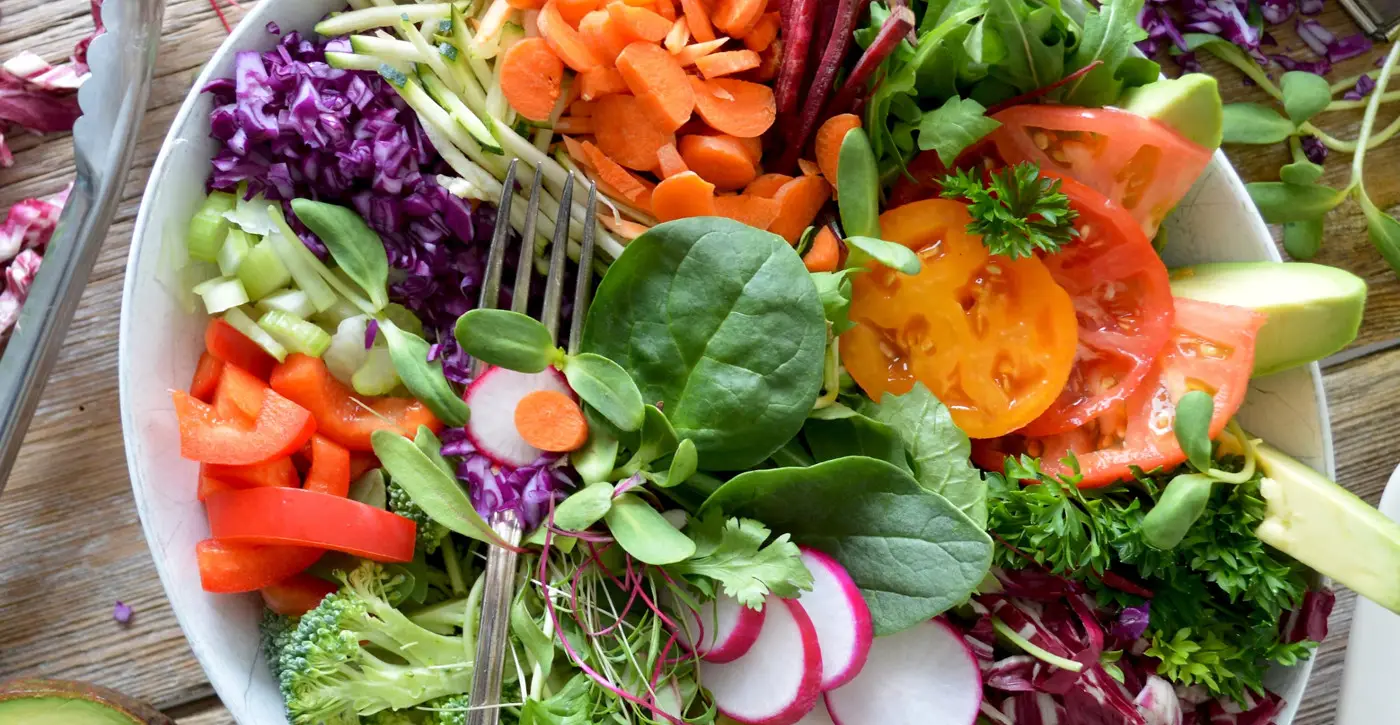
For example:
A diverse and nutritious diet that supports your immune system and fights inflammation is essential.
This means you should eat lots of fruits, vegetables, whole grains, lean protein, and healthy fats, and steer clear of processed foods, added sugars, alcohol, and caffeine, which can harm your health.
Drinking enough water to keep yourself hydrated and remove toxins from your body.
Water can also help prevent dryness and irritation of the skin and mucous membranes, which can result in fewer outbreaks.
L-lysine supplementscan help you prevent herpes outbreaks and stop a cold sore before it develops by depriving the virus of arginine, which it needs to form a cold sore.
Avoiding foods that can cause allergic reactions or sensitivities, such as gluten, dairy, nuts, eggs, or shellfish.
These foods can trigger inflammation and weaken your immune system, making you more susceptible to outbreaks.
Pain, swelling, and itching can be reduced by eating foods that have anti-inflammatory, antiviral, and antibacterial properties, such as honey, yogurt, aloe vera, and chamomile.
These foods can also help you heal faster by promoting tissue repair.
Check more food information
